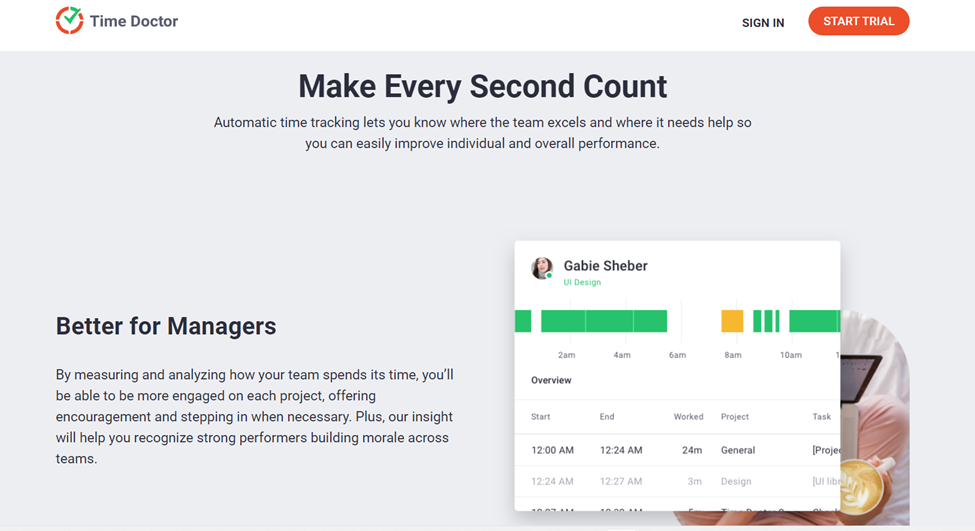Top 7 Ways to Boost Call Center Agent Performance in 2022
Recent times have been challenging for call center agents. Businesses were forced to run their operations virtually, which made it quite difficult to monitor the agents' performance. Meanwhile, they also had to ensure that customers got the best resolution to their questions and grievances.
Despite the uncertainty caused by the pandemic, call centers had to deliver exceptional customer service with concern, care, and empathy. There was only one way to achieve this – by improving the performance of agents. Most of them did so by investing in technology as well as employee training and development.
Customer service is the backbone of every business. Whether you’re still operating virtually or have adopted a hybrid route, you still need an exceptional call center to provide a seamless customer experience. And it’s only possible by upgrading the agents’ performance.
This article, therefore, introduces you to the top seven ways of boosting call center agent performance in 2022.
Here's what you can do:
1. Leverage Real-Time Call Monitoring

With our first strategy, you can water two plants with one hose. How?
Not only does real-time call monitoring help you analyze agent performance but it also lets you gain customer feedback. There’s no better way to obtain valuable insights than listening in on live customer service calls.
By hearing your agents and customers talk in real-time, you can also refine your training and development strategy as well as improve performance appraisals. Employees are more likely to retain their learnings if examples are cited from their own experience.
This strategy does incur a workforce management cost. But the benefits associated with it far outweigh the costs.
2. Invest in Technology

Empowering your call center agents with technology is a way of enhancing their performance. Take time tracking software, for example. Some users of Time Doctor’s time tracking toolsuggest to us that the software helps employees gather insights related to their productivity.
Using automated time tracking, they can make every second of their office hours count. Moreover, agents can identify specific time durations when they feel most overwhelmed with work, as well as other times when they are idle.
The time tracking tool makes call center agents self-accountable, self-directed, and productive. On the other hand, their managers can assess their strengths and weaknesses. Using the findings, they can further improve their training strategy.
Moreover, they can build morale and offer encouragement to agents when needed. Such accountability and transparency ultimately result in an efficient call center overall.
Research suggests that an average employee only utilizes 60% of their workday in a productive manner. That translates to nearly 4.8 hours of productivity every day.
No employee is ever 100% productive every single day. The goal here is to help call center agents achieve their best without compromising work and health. And it’s possible to do so by installing a time tracking tool.
3. Reward Your Agent

Every human being yearns to be recognized for their hard work, which in turn boosts their morale and productivity. Research indicates that 82% of employees consider recognition an important factor in achieving happiness at work. Why should call center agents then remain elusive to it?
When agents achieve short-term and long-term goals, you can reward them with bonuses, incentives, time off, a trip, etc. Consider it an investment for their productivity and thus your call center’s success. Besides, you can always offer them a word of encouragement in team meetings.
This way, other agents will be motivated to perform their best as well.
4. Embrace Skill-Based Routing
Every call center agent has unique skill sets that, when utilized effectively, can improve their productivity. For example, if an agent has the ability to stay calm under intense pressure and has impressive communication skills, route the calls from your angriest customers to them.
It’s much better than letting someone else handle the call who easily crumbles under pressure. Take another example. If a call center agent is known for speedy resolutions, route them to customers who have basic queries about a product or service.
Similarly, if an agent has great attention to detail, let them address potential cases of fraud, often conducted by some customers. This is exactly what Amazon does. They have separate people for fraud investigation, refunds, returns, general customer inquiries, and more.
Moreover, they have both chat and calling options for customers. Let’s say, some of your call center agents are better at typing than talking (or vice versa). You should then assign them to the right team or department.
It makes perfect sense given the fact that 76% of customers prefer phone calls to contact agents, 14% use live chat, and 20% send emails. Therefore, you have to play to individual strengths to improve agents' performance.
If you haven’t yet, you can invest in a call center routing system offered by Talkdesk, Genesys, and Avoxi. Your agents will need some training in order to utilize the system effectively.
5. Schedule Daily Meetings

You might be thinking, “A meeting every single day? Isn’t it too much?” Your concerns are valid and time is the most important asset. That said, the meeting doesn’t have to be longer than five to ten minutes unless you have an agenda that might take longer.
Call it a team huddle. Starting your day with a brief meeting where you can share a few encouraging words and reflect on things that can be improved will lead to a significant improvement in agents’ performance. Use this time to also gather agent feedback.
Address their concerns if any, and recommend ways to overcome issues they might be facing. As a result, your employees will feel noticed and motivated to begin their daily duties. Moreover, they will feel as if they belong to a strong group as opposed to being on their own.
6. Track KPIs
Tracking key performance indicators (KPIs) is vital to evaluate the current performance of your agents as well as to improve it.
Most call centers use the following metrics to analyze the performance
● Average Time in Queue
● Calls Handled
● Average Speed of Answer
● Average Handle Time
● Net Promoter Score (NPS)
● Percentage of Calls Blocked
● First Call Resolution
● Average Abandonment Rate
● Agent Turnover Rate
● Cost Per Call (CPC)
● Customer Effort Score
Now obviously, it’s not possible to track
so many metrics for each agent manually. That’s where technology makes a big
difference again. You’ll benefit greatly from investing in call center CRM software likeLeadSquared, Zoho’s Call Center Management System, and Voicent.
Such systems keep track of the above-mentioned KPIs for you. No wonder, nearly66% of call centers expressed their interest to leverage advanced analytics, research suggests.
7. Prioritize Training & Development

Even though 55% of call centers use the first 6-12 weeks for training their agents as part of their onboarding process, less than 10% of new hires gain desired proficiency in the next two months.
Training is the bedrock of upgrading call center agent performance. And it’s a continuous process, not just for onboarding new agents. In the training sessions, it’s important to use real-life examples of effectively handling customer grievances and queries. The examples must also include how not to address customer inquiries.
Your investment in real-time call monitoring solutions or call center CRMs will pay off during these training sessions. Use the recorded calls and KPIs to assess the performance and hit your quality assurance (QA) goals. It’s important to mention that the training should never be delivered through one-way communication.
Always keep employees in the loop and seek their feedback before, during, and after the training. Use their input to further enhance your training program.
That ends our list of the top seven ways to refine call center agent performance in 2022!
Final Note
There's no doubt that the customer service provided by a call center can make or break any business. And the type of service offered depends entirely upon the productivity and performance of your call center agents.
Now that more businesses are expected to go either fully remote or embrace the hybrid route, focusing on call center agent performance will become all the more important.
Leverage real-time call monitoring, call center CRM software, training & development, key performance indicators, daily meetings, skill-based routing, rewards & incentives, and most important of all, the time tracking software by Time Doctor to upgrade their performance.
Written by:
Guest: Sarah Schumer ([email protected])
